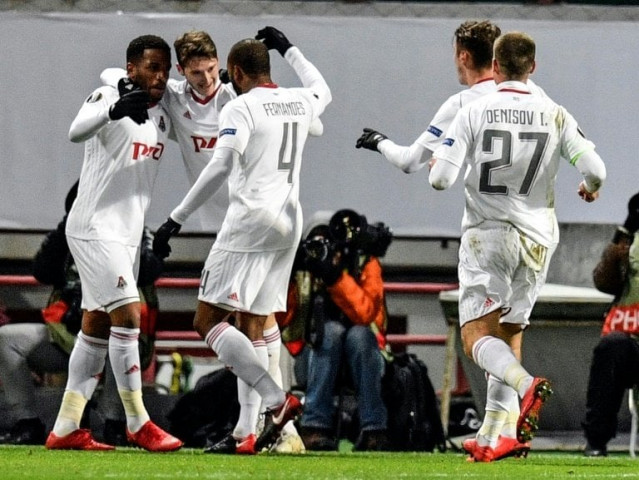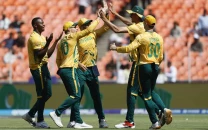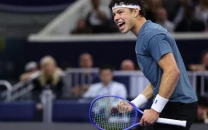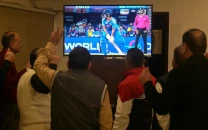Russian football suffers under state control
Budget cuts, shifting political priorities have left country’s league in tantrums

MAIN PROBLEM: There is no single explanation for what ails Russian soccer, but one of the origins of the woes of the national team may rest in a trait of Russia's economy — heavy state involvement. PHOTO: AFP
There is no single explanation for what ails Russian soccer, but one of the origins of the woes of the national team may rest in a trait of Russia's economy: heavy state involvement.
With a couple of notable exceptions, private investors have snubbed Russian soccer so most top-tier clubs are bankrolled by regional authorities and state-owned companies, leaving teams vulnerable to budget cuts and shifting political priorities.
The uncertainty has seen many state backers shun investment in grassroots player development, instead bringing in expensive foreign stars in a race for results when times are good, and cutting back when budgets are tight.
"Everyone wants to be a sprinter. No one wants to invest in the long term," Anatoly Vorobyov, the former general secretary of the Russian Football Union, told Reuters. "Instead of investing in schools, in the grassroots, a huge portion of the state budget is spent on foreign players, on players' very large contracts.”
In the Soviet era, the national team reached the World Cup semi-finals in 1966, was crowned European champions in 1960 and came second three times afterwards. But the sport suffered when the Soviet Union collapsed as training camps fell into disuse at a time of sweeping social and economic transformation.
Little incentive
Leonid Fedun is one of the few private owners of a top-tier Russian soccer club. The billionaire deputy head of oil giant Lukoil bought Spartak Moscow in 2004 when it was in serious financial difficulty.
Fedun created a youth academy and built a 45,000-seat stadium that will be one of 12 World Cup venues.
Russian Premier League runners-up five times since Fedun took over, Spartak finally became champions last year after a 16-year drought.
But he worries that Russian state involvement in soccer, and the economy in general, is becoming ever greater and that this is detrimental to the development of the sport.
"State money is there and there is no escaping it," he told Reuters. "Soccer cannot be outside this system. I don't like this. But at the moment there is no alternative. Most directors at the league have other interests. They need to spend the budgets they are given by the state or sponsors, and not work on developing soccer."
Filling the void
Sponsorship and other commercial revenue accounted for 60.6% of Russian Premier League clubs' revenue in 2016, according to PwC, almost double the European average.
But the investment can be unpredictable. Zenit St Petersburg, bankrolled by Gazprom, signed Brazil's Hulk and Belgium's Axel Witsel for €80 million in 2012 but has since cut back on big transfers as global oil and gas prices slumped.
Little private investment is not the only reason Russian soccer is struggling. Insiders cite a dearth of quality coaches and poor coordination among soccer authorities as contributing factors.


















COMMENTS
Comments are moderated and generally will be posted if they are on-topic and not abusive.
For more information, please see our Comments FAQ